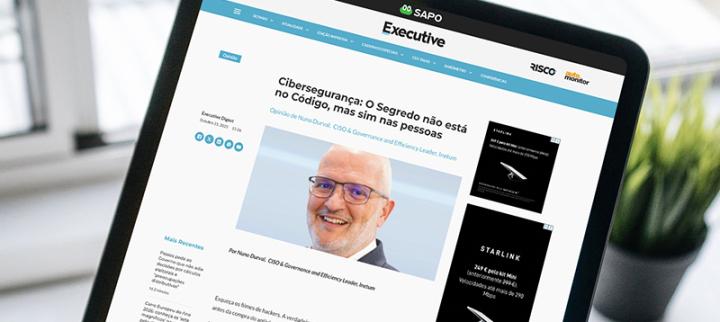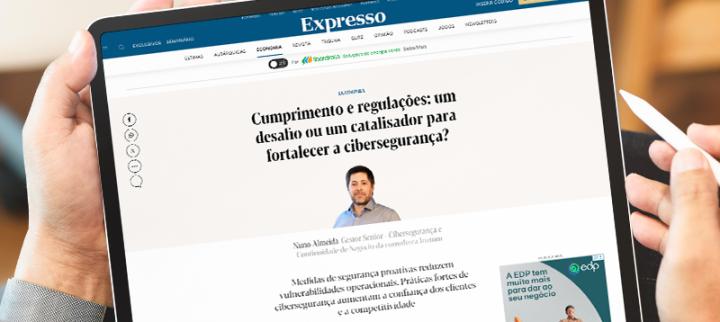Study on the perception and situation of Open Insurance
Study on the perception and situation of Open Insurance
Prepared by ICEA in collaboration with Red Hat and Inetum.
Press Release
Creation date :
Madrid, January 14th, 2021
Presented by the association of Spanish insurance companies ICEA, in collaboration with Red Hat and Inetum and with the participation of 43 entities (representing more than 65% of the sector), this study concludes that one in four insurers will exceed by more than 10% the weight of business created through Open Insurance models in the next three years.
The transition towards greater digitalization, the empowerment of consumers with respect to their data and the entry of new players in the insurance market has led to an increase in use cases related to Open Insurance, a new paradigm linked to the evolution of needs and uses, based on the access and sharing of data related to insurance services between insurers and third parties through APIs (Application Programming Interface) in which technology, data and collaboration emerge as the three main pillars.
Inetum, European leader in digital solutions and services, collaborates with ICEA as a facilitator to get the most out of technology and the permanent digital flow to which organisations must adapt quickly, and actively participates with the insurance sector to drive the new Open Insurance paradigm. Inetum's technological support in the use of key technologies, platform, standards, governance, agility and scalability provide the necessary elements to access and start participating in the new ecosystem and achieve the ultimate goal of alignment with business objectives.
For Santos Vicente, VP Perfomance & Transformation Director at Inetum in Spain, the most relevant feature of the Open Insurance paradigm is the availability of data that will enable a new generation of high value-added products in the insurance sector. Such products will agilely include services provided by third parties and/or supported by sensor/event data captured in the 5G networks of the new business ecosystems. To make this possible, we will need standard platforms that facilitate discovery and access to information via APIs as well as ensure that such data exchanges have been properly authorized by their owners in a 100% secure ecosystem, the sharing of that data."
Almost 85% of the organizations have defined use cases, according to the report Study on the perception and current situation of Open Insurance, prepared by ICEA Association in collaboration with Red Hat and Inetum, with the aim of finding out what is the perception that exists in the insurance sector and where the organizations in our country are at.
"19% have developed more than 10 use cases, mainly related to pricing and underwriting," said Marcial Fernández Amorós, Director of Operations and Organization at ICEA. With regard to strategy, it is worth noting that although it is still poorly defined - almost 30% are fully defined; almost 30% are not defined at all - and the results show a "basic, limited and poorly business-oriented vision", according to the respondents, in 3 years' time, 1 out of every 4 organizations estimates that it will account for more than 10% of the business. "It won't be an option for insurers any time soon. When a client tells us that they want to share their data with a third party, we will have to do so. It's good to start thinking about the possibilities. We should be more proactive than passive," says Fernández Amorós.
As with open banking and PSD2, EIOPA and regulatory authorities believe that this new paradigm can facilitate industry innovation and streamline business to respond to changing customer expectations, while ensuring data protection and insurance regulations. To this end, technology plays a key role in addressing new business models.
Innovation, new business models and focus on customers and new markets are the main benefits mentioned by the insurance companies in the study. In terms of risks, security and cyber-attacks. Cybersecurity solutions, microservices architectures and hybrid cloud are the technologies mentioned as "essential" in this new model.
Luis Carlos Tristán, Insurance Business Unit Director of Inetum in Spain, showed - in his speech on Open Insurance Vision: Opportunity for the creation of new Business Models - examples of international and national companies that are already collaborating with third-party industries and highlighted the key role of technology in tackling new business models and business strategy. In his opinion, the IT (75% according to the study) and Innovation (45%) areas cannot be left alone to manage or drive this new concept: "The business areas, which think about how to interact with third parties, how to access new customer segments, must also participate". He also points out that companies are currently continuing their digitalization process, "each one at a different level", although he considers that the trend is "towards API management software and the generation of microservices that facilitate collaboration with third parties to access the range of opportunities that the new concept entails".
The presentation of this study was accompanied by a round table discussion on Trends in Spain, evolution of technology and its impact on the paradigm and collaboration and relationship with third parties (Mediation, Industries and Insurtech), which highlighted the importance of open technologies to provide value to the customer of insurers. Yago Vizoso, Executive Sales Manager Financial Services at Red Hat, establishes these five trends for insurers in 2021 related to Open Insurance:
- More personalized value-added services and new development architectures.
- Data as a competitive advantage. "Leveraging data and making it available through APIs can introduce new business models."
- Open Api's can help embed technologies into existing complex processes, from application to claims 4.
- Attract partners to help develop new products, services and distribution models. InsurTech
- Transform the way existing systems interact with each other and with customers.
Pepe Such, COO at Flexmyroom, insists on the relevance of insurtech alliances with traditional companies to offer clients greater options. He is committed to relying on industry models and standards, "which facilitate two-way information sharing" and the need for companies to develop APIs for certain products, "to be able to connect and make the service agile".
In terms of future vision, the speakers believe that products with high added value will emerge that will enable insurers to differentiate themselves from the commoditization of the sector. They believe that having real-time information will enable companies to anticipate, to become the guardian angel concept. They trust in the mobile device for the penetration of insurance in the consumer's daily life and point to a change of paradigm in the insurance sector with blockchain technology, "which provides security, trust and decentralization".
About Inetum, Positive digital flow:
Inetum is an agile IT services company that provides digital services and solutions, and a global group that helps companies and institutions to get the most out of digital flow. In a context of perpetual movement, where needs and usages are constantly being reinvented, the Inetum group is committed to all these players to innovate, continue to adapt, and stay ahead. With its multi-expert profile, Inetum offers its clients a unique combination of proximity, a breakdown by sector, and state of the art solutions. Operating in more than 26 countries, the Group has nearly 27,000 employees and in 2020 generated revenues of €1,966 billion.


